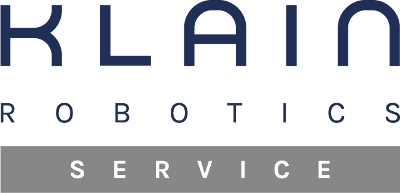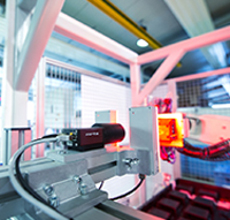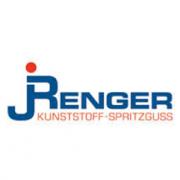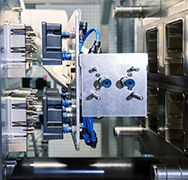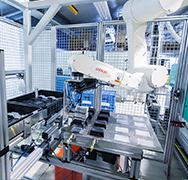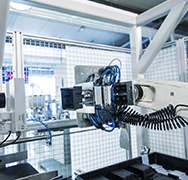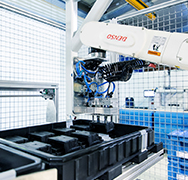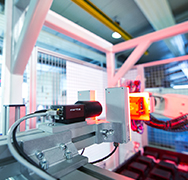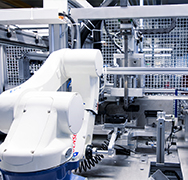Company: RENGER Kunststoffspritztechnik GmbH & Co. KG
Industry: Production of plastic parts in injection molding technology
DENSO Products Used: VS-6577, VM-60B1G
Company Location: Germany
Website: http://www.renger-gmbh.de
THE PROBLEM
Traditionally, the automotive supplier industry has been one of the most important branches for using compact robots, which are being employed in the manufacturing of various components. One of the companies in this area relying on DENSO robots is Renger Kunststoffspritzteile GmbH & CO. KG in Inzigkofen north of the Lake Constance in the Southwest of Germany. The company primarily manufactures plastic components in injection-moulding technology for the automotive industry. In this case study, we are looking at their production of cases for airbag control units, undoubtedly one of the most safety-related components in cars.
The challenge: In the past, the company had assembled the components by relying on traditional linear systems, quality control was carried out by employees. With the introduction of DENSO robots, however, the cycle time could be reduced significantly while also realising a zero defect figure. It is this 100-percent quality that really matters when it comes to delivering these crucial car components.
Thus the manufacturer had to develop a robot-based system, which would combine a fast pick-and-place performance with an outstanding quality control.
THE SOLUTION
Renger has been working with DENSO robots since 2009 as the company appreciated the robots’ flexibility and the possibility of combining various tasks even later in the process. In light of growing quality and cost requirements of plastic components demanded by the car industry, these were two decisive advantages.
DENSO robots convinced the company also with their high speed, simple handling and the programming approach. Renger is using the VS-6577 and the VM-60B1G (among others), which were selected due to their arm length and payload capacity. Until then, Renger had only worked with linear robots, which offer only a fraction of operation capabilities a six-axis robot can cover.
At Renger, DENSO robots are primarily used in the manufacturing and quality control of cases for airbag control units; these manufacturing system are quite complex, as they are fully integrated with an injection moulding machine and a PLC system.
THE RESULT
During the manufacturing of cases for airbag control units, the blank parts are being taken from the injection-moulding machine, then put into small load carriers and then equipped with aluminium nuts.
In this process, the robot’s tasks (DENSO VS-6577 as well as VM-60B1G) are far exceeding pick-and-place commands: Supported by a visual camera system, the robot removes the components directly from the cast spraying machine, then performs the quality control (checking for any defects) and subsequently places the flawless components in the small load carriers for subsequent processing. In the next system, the components are being removed from the carrier, then placed into a complex press-fit system, followed by another quality check before components are being put into a „finished part“ carrier.
Cutting the old cycle of linear systems in half, the current, total cycle time for this process is only 8 seconds (depending on the components’ finish. In this time, the system also manages to achieve a zero defect quality check – a must for the automotive industry. Last but not least, the system only needs half of the space the old machines had required.
For this process, the robots are operating fully integrated in complex PLC systems (Siemens S7) communicating with digital in and outlets; the robots are programmed with the DENSO software WINCAPS.
Equally extensive is another application at Renger, the manufacturing of injection-moulded plastic parts such as cases and caps. In this case, the removal system, equipped with a DENSO VM-60B1G, is required to function flexibly while also being able to perform tasks such as sorting, placing and quality control. Here, the robot takes the component directly from the injection-moulding machine and then places it onto a conveyer belt or a placing station. The components’ visible surfaces are quite sensitive – but thanks to a perfectly timed removal process between the machine and the robot they are handled without leaving any marks. The always consistent cycle time (between 20 and 100 seconds, depending on the component) guarantees the highest quality standards. In this application, the robots are being connected directly to the injection-moulding machine via a Euromap interface and programmed with WINCAPS.
„We have received a great of deal of support from DENSO Robotics, in particular during the introduction of our first of their robots in 2009“, says Rainer Klein from Renger. „DENSO’s service quality has always been excellent, and the robots are operating with a minimum of maintenance.“ Currently, the company has seven DENSO robots is use; these are working 24-hour shifts: Since 2010, the robot-supported system for airbag control unit cases alone has manufactured some 14 million components – with the first installed VS-6577 in a virtually failure-free operation.
